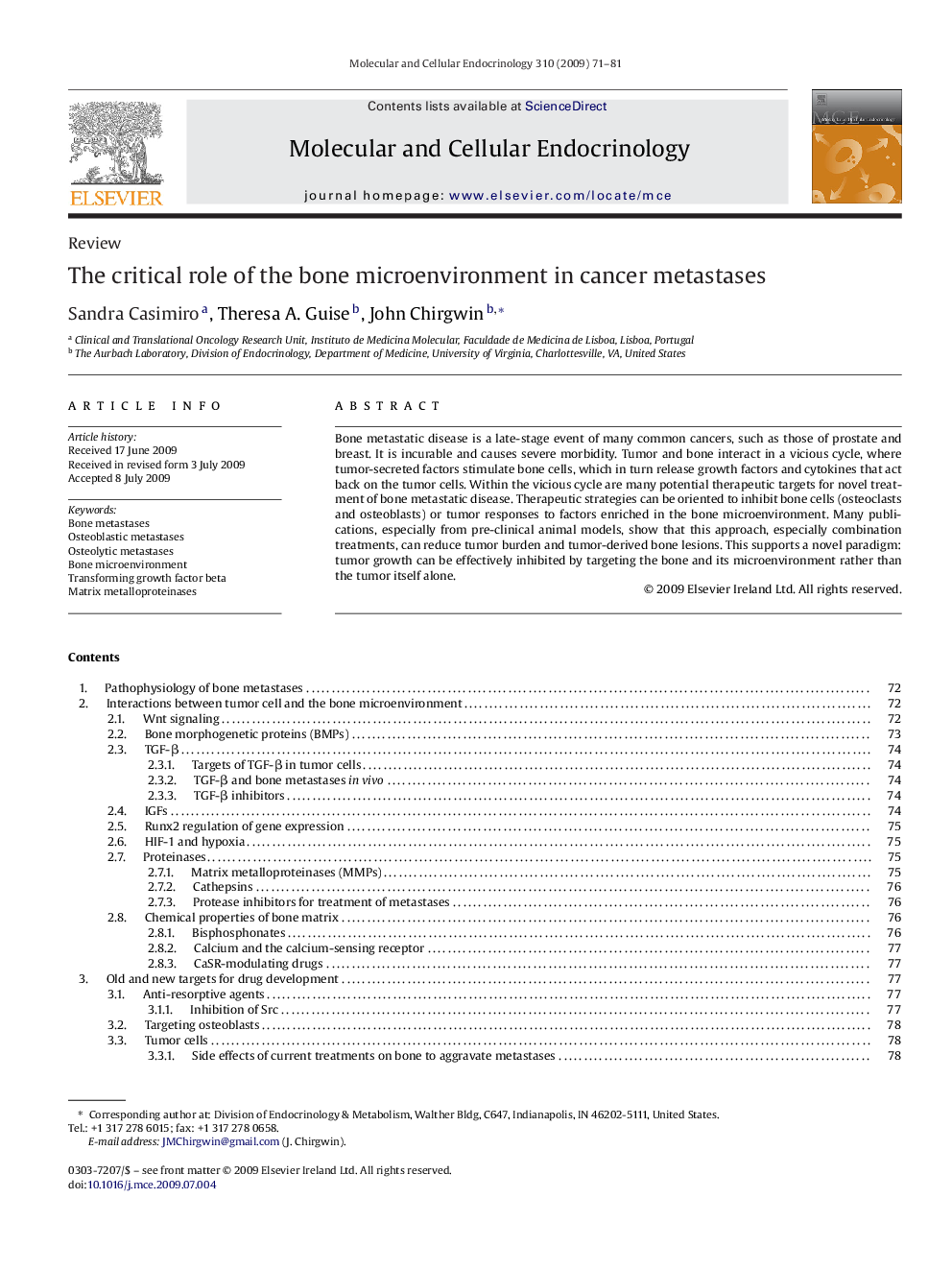| Article ID | Journal | Published Year | Pages | File Type |
|---|---|---|---|---|
| 2197185 | Molecular and Cellular Endocrinology | 2009 | 11 Pages |
Bone metastatic disease is a late-stage event of many common cancers, such as those of prostate and breast. It is incurable and causes severe morbidity. Tumor and bone interact in a vicious cycle, where tumor-secreted factors stimulate bone cells, which in turn release growth factors and cytokines that act back on the tumor cells. Within the vicious cycle are many potential therapeutic targets for novel treatment of bone metastatic disease. Therapeutic strategies can be oriented to inhibit bone cells (osteoclasts and osteoblasts) or tumor responses to factors enriched in the bone microenvironment. Many publications, especially from pre-clinical animal models, show that this approach, especially combination treatments, can reduce tumor burden and tumor-derived bone lesions. This supports a novel paradigm: tumor growth can be effectively inhibited by targeting the bone and its microenvironment rather than the tumor itself alone.
